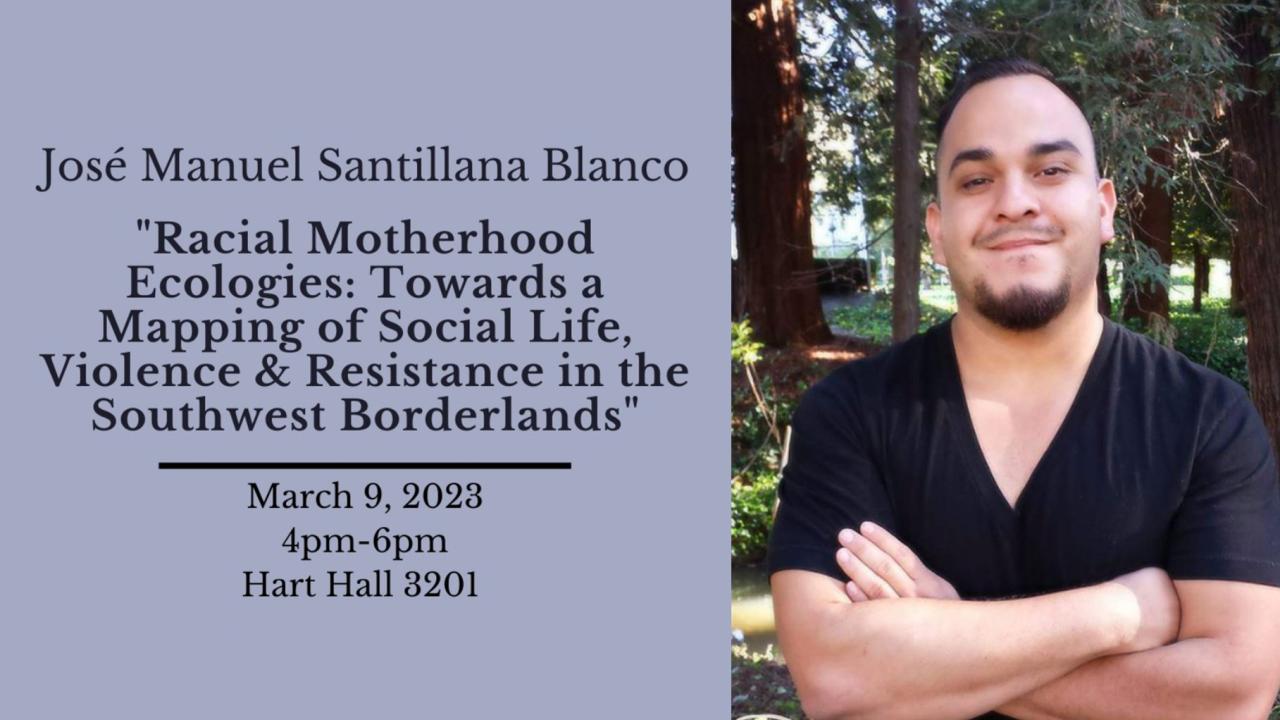
Event Date
Cultural Studies Colloqium
Racial Motherhood Ecologies: Towards a Mapping of Social Life, Violence & Resistance in the Southwest Borderlands examines and explores how Black, Brown, and Indigenous activist mothers in the Southwest Borderlands have fought against racialized ecological violence for over three decades. Through a deep engagement of working-class racialized women’s experiences in the rural California town of Kettleman City, San Francisco’s Southeastern community of Bayview Hunters Point and the San Ildefonso Pueblo in New Mexico, this research highlights the intricate role local environmental histories play in shaping ecologies across varying geographies, especially in relation to the ways in which motherhood becomes salient as a mobilizing force to address and disrupt structural violence in their communities. As such, racialized mothering or motherhood becomes a central tenet to understanding ecological violence, resistance, spatiality, and the environment in the United States.
José Manuel Santillana Blanco is a Queer Xicanx Feminist scholar and storyteller. As a son of Mexican immigrant parents, José Manuel was politicized within the rural migrant farmworker landscapes of central California. He is a University of California President’s and Andrew W. Mellon Foundation Postdoctoral Fellow in the Department of American Studies at UC Davis. Drawing on the work of Black, Latinx and Indigenous decolonial thinkers, his work explores the ways Black, Immigrant and Indigenous women-led community struggles across the United States have been foundational to our understanding of racialized social life, ecological violence and resistance across entangled geographies.
Sponsors: Feminist Research Institute, Department of American Studies, and Cultural Studies Graduate Group